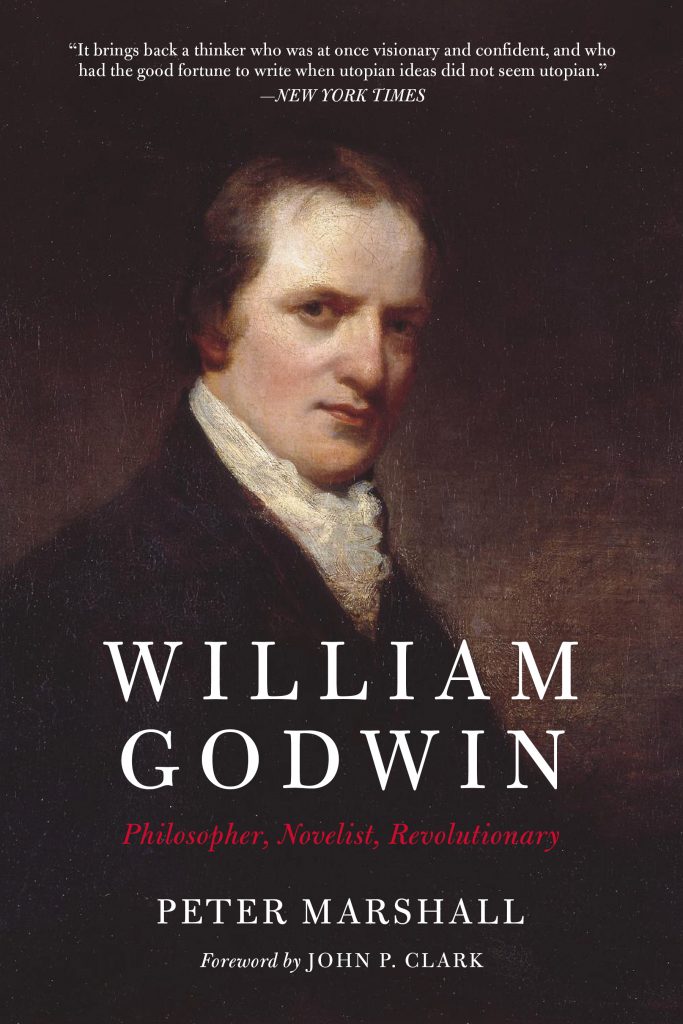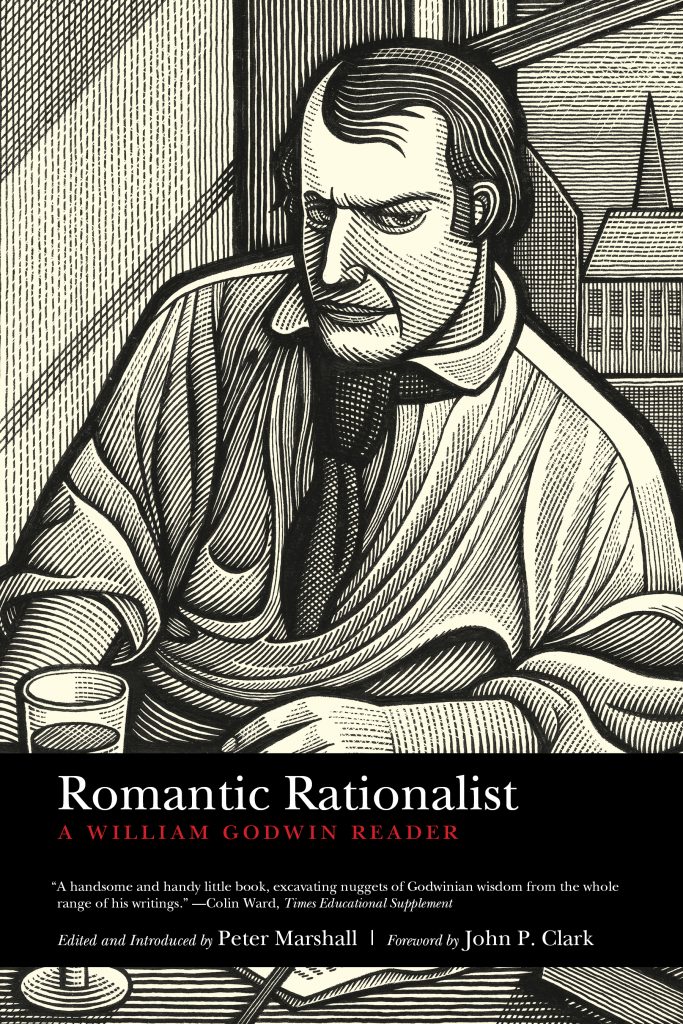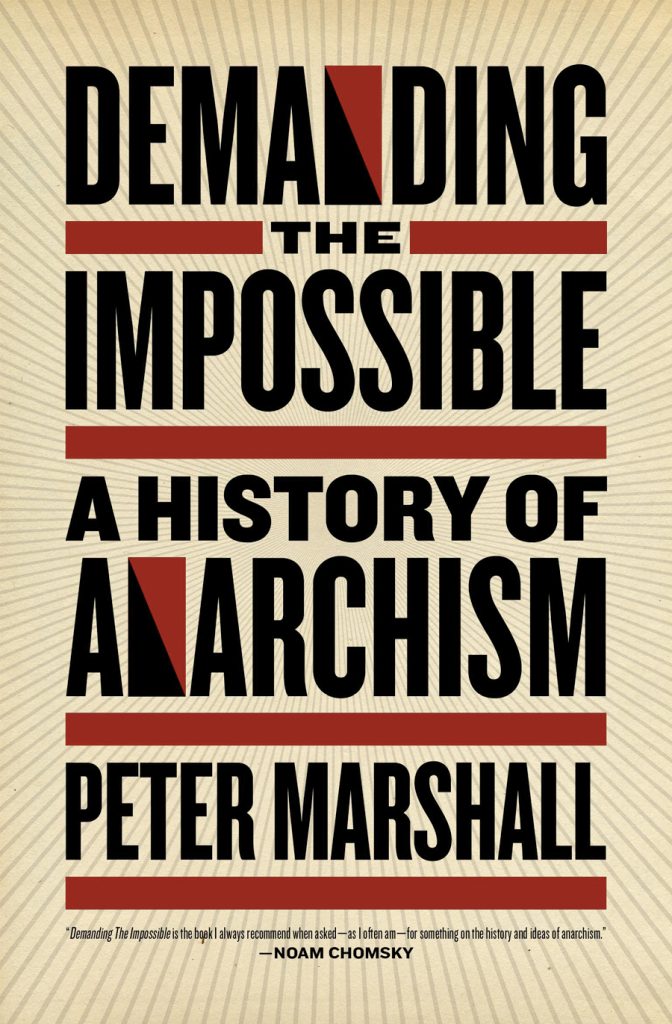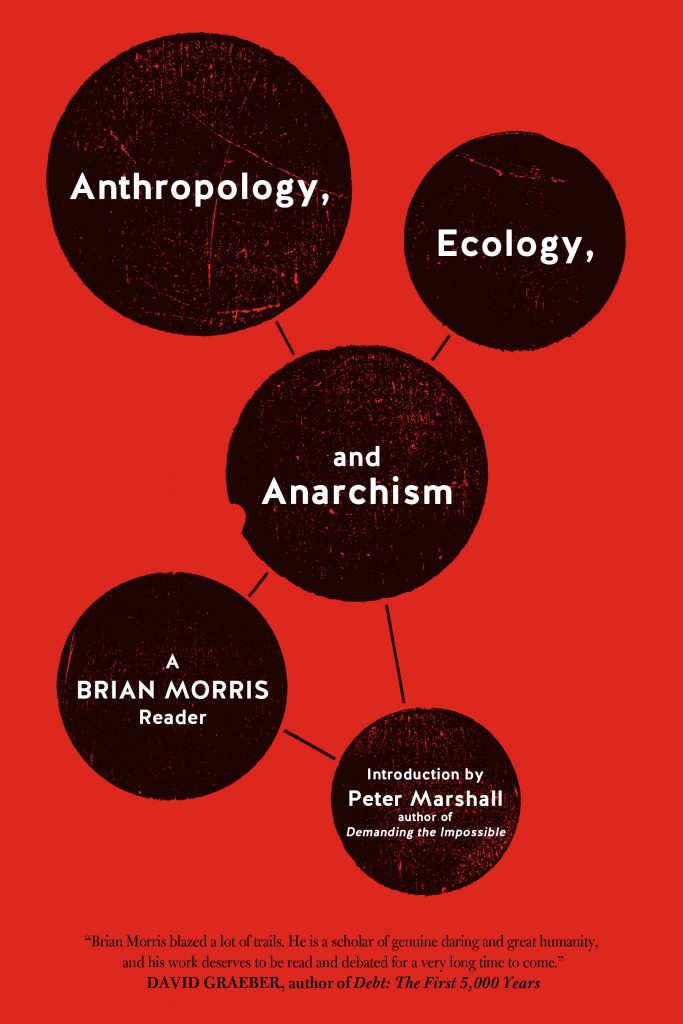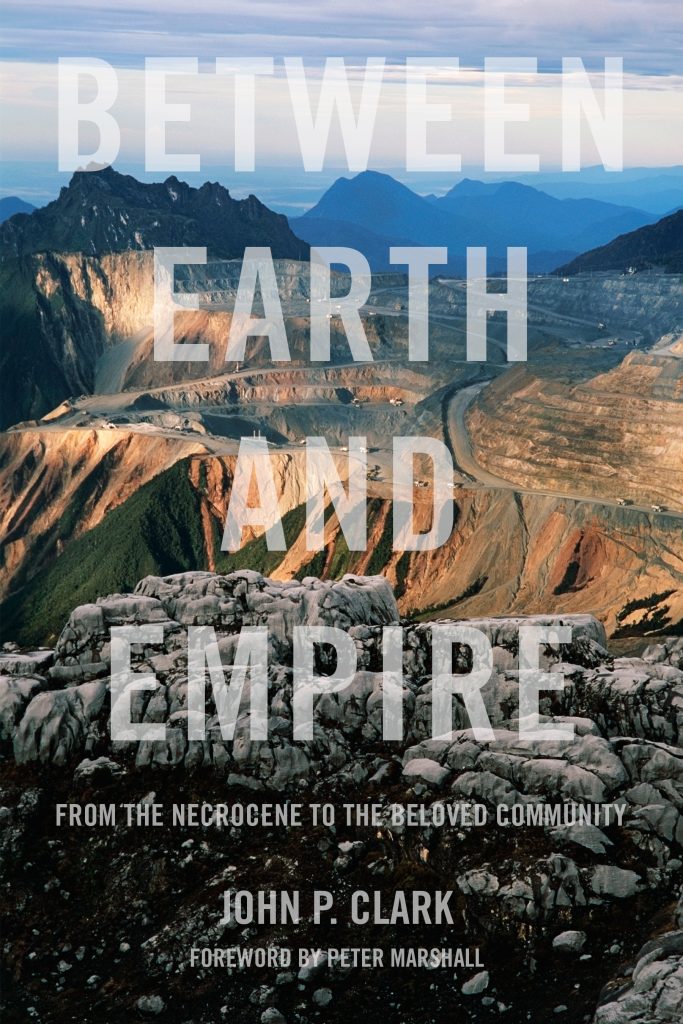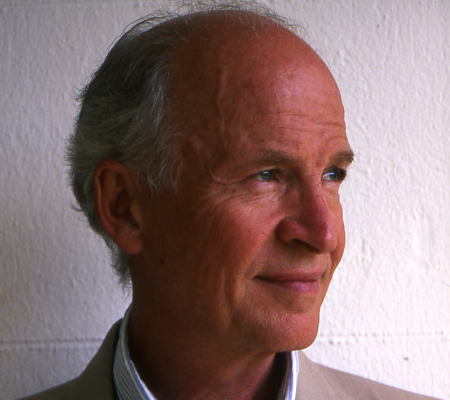
Peter Marshall is a philosopher, historian, biographer, travel writer and poet. He has written sixteen highly acclaimed books which are being translated into fifteen different languages. His most recent book is the first part of his memoirs Bognor Boy: How I Became an Anarchist (London: Zena, 2018). It is a colourful and lyrical early memoir covering the period between 1946 and 1970.
His circumnavigation of Africa was made into a 6-part TV series and his voyage around Ireland into a BBC Radio series. He has written articles and reviews for many national newspapers and journals.Widely recognized as a bold and original thinker, Marshall has made a major contribution to fields as diverse as anarchism, ecology, alchemy and archaeology. He has been hailed by Resurgence magazine as one of the twenty five ‘visionary voices’ who have helped shape the new world view in the last quarter of a century. In his life and writings, he has tried to expand freedom and to help all beings realize their full potential.
Born on 23 August 1946 in Bognor Regis, England, a stone’s throw from the sea, Peter Hugh Marshall became a boarder at Steyning Grammar School in the Sussex Downs. He then sailed around the world as a purser cadet in the P & O-Orient Shipping Company before teaching English in Senegal, West Africa.
He returned to England to take a B.A.degree in English, French and Spanish from London University and an M.A. and a D.Phil. in the History of Ideas from Sussex University. He has taught philosophy and literature at several British universities and art schools.
In the 1970s Marshall was a founding member of a libertarian community in Buckinghamshire called Redfield. He went in 1980 with Jenny Zobel to Snowdonia in North Wales for a winter to finish his first book and stayed on for 21 years, first living in a remote cottage in the mountains and then down by the sea. He now lives on an organic smallholding in Devon with Elizabeth Ashton Hill. Apart from writing and growing fruit and vegetables, his great passion is sailing. He has two children, Emily and Dylan.
Marshall has been chairman of the Toussaint L’Ouverture Theatre Company and a trustee of the Tree Shepherds. He is now a member of the Society of Authors and an elected fellow of the Royal Geographical Society.
Titles by Peter
Introductions/Forewords by Peter
William Godwin: Philosopher, Novelist, Revolutionary
SKU: 9781629633862
Author: Peter Marshall • Foreword by John P. Clark
Publisher: PM Press
ISBN: 9781629633862
Published: 6/2017
Format: Paperback, ePub, PDF, mobi
Size: 6 x 9
Page count: 544
Subjects: Biography/Philosophy-Anarchism
Praise
“The most comprehensive and richly detailed work yet to appear on Godwin as thinker, writer, and person.”
—John P. Clark, The Tragedy of Common Sense
“An ambitious study that offers a thorough exploration of Godwin’s life and complex times.”
—Library Journal
“Marshall steers his course . . . with unfailing sensitivity and
skill. It is hard to see how the task could have been better done.”
—Michael Foot, The Observer
“It brings back a thinker who was at once visionary and confident,
and who had the good fortune to write when utopian ideas did not seem
utopian.”
—David Bromwich, New York Times
“An absorbing biography . . . presenting a sympathetic portrait of a
principled, embattled humanist. Peter Marshall describes these
voluminous and multifaceted writings discerningly.”
—M.B. Freidman, Choice
Romantic Rationalist: A William Godwin Reader
SKU: 9781629632285
Author: William Godwin • Edited by Peter Marshall • Foreword by John P. Clark
Publisher: PM Press
ISBN: 9781629632285
Published: 2/2017
Format: Paperback, ePub, PDF, mobi
Size: 6 x 9
Page count: 192
Subjects: Political Theory/Anarchism
Praise
“Peter Marshall has produced the most useful modern account of
Godwin’s life and now the most useful modern anthology of his writings.
Marshall’s selection is sensible and valuable, bringing out the
important points. . . . His introduction is a good summary of Godwin’s
life and work. . . . Marshall is right to see him as ‘the most profound
exponent of philosophical anarchism.’”
—Nicolas Walter, New Statesman
“A handsome and handy little book, excavating nuggets of Godwinian wisdom from the whole range of his writings.”
—Colin Ward, Times Educational Supplement
“An anarchist classic . . . with a valuable sketch of Godwin’s life
and an interpretation of his work. Much of what Godwin says is obvious
common sense.”
—Henry Geiger, Manas Journal
Demanding the Impossible: A History of Anarchism
SKU: 9781604860641
Author: Peter Marshall
Publisher: PM Press
ISBN: 9781604860641
Published: 12/2009
Format: Paperback, ePub, PDF, mobi
Page count: 840
Size: 8.5 x 5.5
Subjects: History, Political Science
Praise
“Demanding the Impossible is the book I always recommend when asked—as I often am—for something on the history and ideas of anarchism.”
—Noam Chomsky
“Attractively written and fully referenced…bound to be the standard history.”
—Colin Ward, Times Educational Supplement
“Large, labyrinthine, tentative: for me these are all adjectives of praise when applied to works of history, and Demanding the Impossible meets all of them.”
—George Woodcock, Independent
Anthropology, Ecology, and Anarchism: A Brian Morris Reader
SKU: 9781604860931
Author: Brian Morris • Introduction by Peter Marshall
Publisher: PM Press
ISBN: 9781604860931
Published: 12/14
Format: Paperback, ePub, PDF, mobi
Size: 9 x 6
Page count: 288
Subjects: Politics-Anarchism/ Social Science-Anthropology
Praise
“Brian Morris blazed a lot of trails. He is a scholar of genuine
daring and great humanity, and his work deserves to be read and debated
for a very long time to come.“
—David Graeber, author of Debt: The First 5,000 Years
“This is a marvelously original book bursting with new ideas. I have
read it with enormous interest and admiration. This collection of essays
is an outstanding contribution to anthropology, environmental thought,
and anarchism.“
—Andrej Grubacic, professor and department chair in Anthropology and Social Change, California Institute of Integral Studies
“Before there was ’anarchist anthropology,’ there was Brian Morris.
This collection introduces the work of an intrepid pioneer, taking
anarchist perspectives to where you would least expect them.“
—Gabriel Kuhn, editor and translator of All Power to the Councils! A Documentary History of the German Revolution of 1918–1919, Liberating Society from the State and Other Writings by Erich Mühsam, and Revolution and Other Writings by Gustav Landauer
“Brian Morris’s scholarship is nothing if not compendious. . . .
Morris’s achievement is formidable. His control of such a breadth of
material is enviable, and his style is always lucid. He makes difficult
work accessible. His prose conveys the unmistakable impression of a
superb and meticulous lecturer at work.“
—Anthony P. Cohen, University of Edinburgh
“Morris’s acerbic analysis of established literature is matched by
nuanced ethnographic analysis. . . . He writes accessibly about
complicated matters.“
—Allen F. Roberts, University of California, Los Angeles
Between Earth and Empire: From the Necrocene to the Beloved Community
SKU: 9781629636481
Author: John P. Clark • Foreword: Peter Marshall
Publisher: PM Press
ISBN: 9781629636481
Published: 7/2019
Format: Paperback, ePub, PDF, mobi
Size: 6 x 9
Page count: 384
Subjects: Politics-Anarchism/Philosophy
Praise
“Whether in Rojava, where women are fighting for their people’s
survival, or in the loss and terror of New Orleans after the Katrina
flood, Clark finds models of communality, care, and hope. Finely
reasoned and integrative, tracing the dialectical play of institution
and ethos, ideology and imaginary, this book will speak to philosophers
and activists alike.”
—Ariel Salleh, author of Ecofeminism as Politics
“Clark presents very sophisticated philosophical concepts in a style
that is quite comprehensible to the general public. Each page sheds new
light on our age of planetary turbulence and demolishes all
pseudo-truths about it.”
—Ronald Creagh, author of American Utopias
“John Clark’s book is a measured manifesto. It is a must read for any
activist or scholar concerned with the alternatives to capitalism’s
ongoing war on nature.”
—Andrej Grubačić, coauthor of Living at the Edges of Capitalism
“John Clark’s Between Earth and Empire is a guide to that
which is obvious yet confoundingly obscure—namely, that models of social
organization based in care and cooperation are infinitely more
constructive and mutually beneficial than those based in competition and
conquest.”
—Alyce Santoro, conceptual/sound artist and activist
“This book is a compass, polarized in the superlative subtropiques of
the Gulf Coast, orienting cardinal points in the landscapes of the
Zapatistas, the Black Panther Party, the Kurdish freedom movement, and
West Papua. The diamantine dialectics of freedom breathing through the
pages of this book will be a decisive factor in the final battles
between earth and empire, between evolution and extinction. Which side
are you on?”
—Quincy Saul, cofounder of Ecosocialist Horizons, and editor of Maroon Comix
Book Events
july, 2025
No Events
Reviews
- Romantic Rationalist: A William Godwin Reader: A Review
- Demanding the Impossible: A Review
- Demanding the Impossible: A Publishers Weekly Review
- Demanding the Impossible: A History of Anarchism: A Review
- Demanding the Impossible: A History of Anarchism Book Review
- Demanding the Impossible on Powell’s Books Review-a-Day
- Demanding the Impossible in Time Out NY
- Demanding the Impossible in Perspectives on Terrorism
- Between Earth and Empire: A CHOICE Review
- Between Earth and Empire— Recommended book for EcoSocialists
- Between Earth and Empire in Foreword Reviews
- Anthropology, Ecology, and Anarchism: A Review
Interviews
Mentions
Blog
- A Sea Ethic
- Europe’s Lost Civilization: The Society of the Megalith Builders
- Midsummer at Stonehenge
- Patriotism and the Tidal Wave of Hatred
- The Architecture Of Oppression— By Peter Marshall
- Good For Some, Not For Others— By Peter Marshall
- Fight or Flee— By Peter Marshall
- Coronavirus— By Peter Marshall
- Brexit and the European Union
- Hippiedom and the New Society

